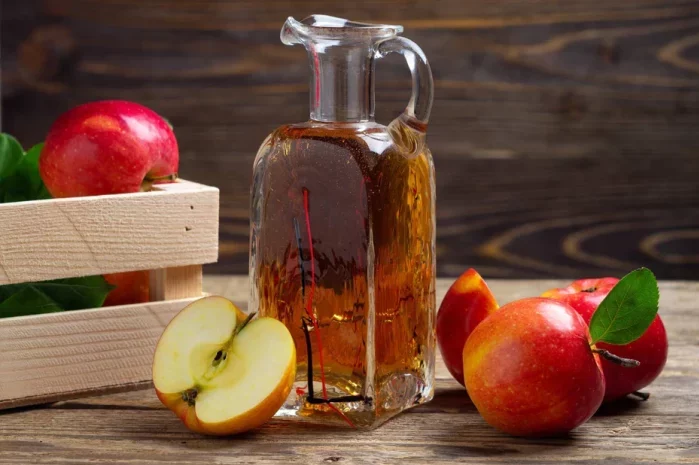In recent years, the demand for gluten-free beverages has been on the rise, driven by an increasing number of individuals with gluten sensitivities or celiac disease. Hard apple cider, a popular alcoholic drink made from fermented apple juice, has found its way into the spotlight of this gluten-free debate. Many cider enthusiasts and those with dietary restrictions are left wondering: is hard apple cider gluten free? The answer is not as straightforward as it may seem and is influenced by a variety of factors, including the production process, ingredients used, and potential sources of cross-contamination. This comprehensive article will explore the intricacies of hard apple cider production and analyze the gluten content, or lack thereof, to provide a clear understanding for consumers.
Understanding Gluten
What is Gluten: Gluten is a mixture of proteins that are found in certain grains, primarily wheat, barley, and rye. It is composed of two main types of proteins: gliadin and glutenin. These proteins give dough its elasticity and help it rise during baking. Gluten is what gives bread its chewy texture and allows it to hold its shape. In addition to its presence in bread, gluten is also found in a wide range of other food products, including pasta, cereals, and many processed foods. It can also be hidden in ingredients such as malt, which is derived from barley and is often used in brewing and food flavoring. For example, malt syrup or malt extract is commonly used in the production of some beers and can also be an ingredient in certain food items. Understanding the sources of gluten is crucial for those who need to avoid it due to health reasons.
Health Implications of Gluten for Sensitive Individuals
For individuals with celiac disease, gluten is a serious threat. Celiac disease is an autoimmune disorder in which the ingestion of gluten triggers an immune response that damages the lining of the small intestine. This damage can lead to a wide range of symptoms, including abdominal pain, bloating, diarrhea, and fatigue. In severe cases, it can also lead to malabsorption of nutrients, which can result in weight loss, anemia, and other health problems. Even for those with non-celiac gluten sensitivity, the consumption of gluten can cause similar, albeit less severe, symptoms such as abdominal discomfort, headaches, and joint pain. It is estimated that a significant percentage of the population may have some degree of gluten sensitivity, which has led to the growing demand for gluten-free products.
The Production Process of Hard Apple Cider
Apples and Their Gluten-Free Nature: The main ingredient in hard apple cider is, unsurprisingly, apples. Apples are naturally gluten free. They are a rich source of natural sugars, vitamins, and antioxidants. The sugars in the apples are what provide the fuel for the fermentation process. Different varieties of apples can be used in cider production, each contributing its own unique flavor profile. For example, some apples may be more tart, while others are sweeter. The choice of apple varieties can greatly influence the taste of the final cider product. Since apples do not contain gluten, they form a solid foundation for a potentially gluten-free cider.
Other Additives and Their Gluten Status
In addition to apples, some hard apple ciders may contain other additives. These can include things like sugar, spices, and flavorings. Sugar is often added to adjust the sweetness of the cider, especially if the apples used have a low natural sugar content. Spices such as cinnamon or nutmeg may be added to enhance the flavor. Flavorings can range from natural extracts like vanilla to more complex blends. Most of these common additives are gluten free. However, it is important to note that some flavorings or additives may have been processed in facilities that also handle gluten-containing products, which could potentially lead to cross-contamination. For example, a vanilla extract that is made in a factory that also processes products with malt could have trace amounts of gluten, although this is relatively rare.
Fermentation Process
Role of Yeast and its Gluten-Free Properties: The fermentation process is a crucial step in the production of hard apple cider. Yeast is added to the apple juice to convert the sugars into alcohol and carbon dioxide. The most commonly used yeasts in cider production are Saccharomyces cerevisiae and other related species. Yeast is a microorganism that is gluten free. It feeds on the sugars in the apple juice and produces alcohol as a byproduct. During fermentation, the yeast multiplies and metabolizes the sugars, gradually increasing the alcohol content of the cider. This process can take anywhere from a few days to several weeks, depending on the desired alcohol level and the specific production methods used. The gluten-free nature of yeast ensures that it does not introduce gluten into the cider during this essential stage.
Potential for Cross-Contamination during Fermentation
While the yeast itself is gluten free, there is a potential for cross-contamination during the fermentation process. If the cider is produced in a facility that also brews beer or processes other gluten-containing products, there is a risk that gluten could find its way into the cider. For example, if the same equipment is used without proper cleaning and sanitization, trace amounts of gluten from beer production could remain and contaminate the cider. Additionally, if the cider is stored or transported in containers that have previously held gluten-containing products, cross-contamination could occur. However, many cider producers are aware of this issue and take steps to prevent it. They may have dedicated facilities or equipment for cider production, or they may implement strict cleaning and sanitization procedures to minimize the risk of cross-contamination.
Gluten Testing and Certification
Enzyme-Linked Immunosorbent Assay (ELISA) Tests: One of the most common methods for testing gluten in hard apple cider is the Enzyme-Linked Immunosorbent Assay (ELISA) test. This test works by using antibodies that specifically bind to gluten proteins. A sample of the cider is taken and mixed with the antibodies. If gluten is present in the sample, the antibodies will bind to it, and a color change or other signal is produced, which can be measured. ELISA tests can detect gluten at very low levels, typically down to a few parts per million (ppm). However, they are not without their limitations. False positives can occur if there are other substances in the cider that mimic gluten or if the test is not properly calibrated. False negatives can also happen if the gluten is in a form that the antibodies do not recognize, such as when it has been broken down during fermentation.
Liquid Chromatography-Mass Spectrometry (LC-MS) Tests
Liquid Chromatography-Mass Spectrometry (LC-MS) is another method used for gluten testing. This technique separates the components of the cider based on their chemical properties and then uses mass spectrometry to identify and quantify the gluten proteins. LC-MS is a more accurate and sensitive method than ELISA in some cases. It can provide detailed information about the specific types of gluten proteins present and their concentrations. However, it is also a more expensive and complex test, requiring specialized equipment and trained personnel. It is often used in research settings or for verifying the results of ELISA tests when a more definitive analysis is needed.
Gluten-Free Certification and Its Significance
What Gluten-Free Certification Means: Gluten-free certification is a process by which a product is tested and verified to contain less than a certain amount of gluten. In the United States, the Food and Drug Administration (FDA) has set a standard of less than 20 ppm of gluten for a product to be labeled gluten free. Certification organizations, such as the Gluten-Free Certification Organization (GFCO) or the Celiac Support Association (CSA), conduct independent tests and inspections to ensure that products meet this standard. For hard apple cider, obtaining gluten-free certification can provide consumers with confidence that the product is safe for those with gluten sensitivities or celiac disease. It indicates that the producer has taken steps to ensure that the cider is free from gluten, both in its ingredients and in its production process.
Conclusion
The question of whether hard apple cider is gluten free is a complex one that depends on multiple factors. While the main ingredient, apples, is gluten free and the fermentation process using yeast does not introduce gluten, the potential for cross-contamination and the use of certain additives or flavorings can impact the gluten status. Gluten testing and certification can provide consumers with some assurance, but it is still important to be vigilant, especially for those with celiac disease or severe gluten sensitivity. By understanding the production process, the different types of ciders, and the importance of gluten-free certification, consumers can make informed choices when it comes to enjoying hard apple cider. Whether opting for a traditional, flavored, or cider-based cocktail, there are many gluten-free options available, allowing cider lovers with dietary restrictions to still partake in this delicious beverage.
Related Topics:























